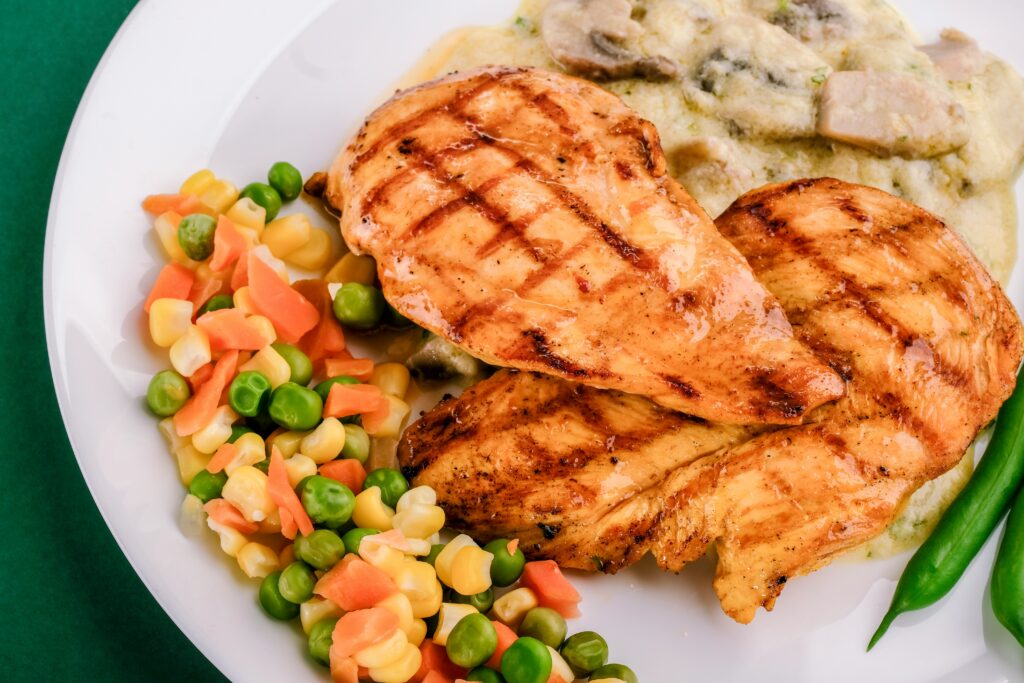Are you ready to begin your healthy cooking journey, but feel intimidated? It’s easy to assume that mastering healthy meals means complicated recipes or strict rules, but the truth is, it’s a learning process filled with trial and error. And here’s the best part—you don’t need to be perfect. It’s all about making progress, one meal at a time.
Below, we’ve put together some simple, practical, healthy cooking tips to help you get started. Whether you’re new to the kitchen or looking to sharpen your skills, these steps will set you on the right path.
1. Start Small With Simple Recipes
The first mistake many make when preparing nutritious meals is going all in with complex recipes. But this quickly becomes overwhelming if you’re not used to spending much time in the kitchen. Instead, start small. Look for recipes with five to seven ingredients that don’t require hours of prep or fancy tools.
For example:
- Sheet pan recipes featuring lean protein, such as chicken breast, paired with roasted vegetables.
- One-pot meals, such as hearty vegetable soups or stews, are ideal for busy days.
- Salad bowls where all you need is a base of greens, protein, a few toppings, and a simple dressing.
Remember, simple doesn’t mean boring. Some of the most delicious meals are just a handful of high-quality, fresh ingredients.
2. Get Comfortable With Mistakes
Here’s one of the most important things to remember on your cooking adventure— mistakes will happen. You might burn the quinoa, oversalt the soup, or end up with soggy roasted vegetables. It’s all part of the process.
Instead of feeling discouraged, treat your mistakes as an opportunity to learn. Adjust next time, and don’t be afraid to experiment. Every failed batch brings you closer to a recipe that works.
3. Prioritize Real, Whole Foods
Healthy cooking starts with healthy ingredients. Keep your kitchen stocked with a variety of whole, minimally processed foods like:
- Fresh vegetables and fruits
- Whole grains like quinoa, brown rice, or oats
- Lean proteins, including chicken, fish, eggs, or beans
- Healthy fats such as avocados, nuts, and olive oil
Pro Tip: Plan your grocery shopping trips with a list and stick to the outer edges of the store, where fresh, whole foods are typically displayed.
4. Batch Cook to Save Time
One of the most significant barriers to healthy cooking is time, but batch cooking can make life so much easier. Dedicate one day of the week (Sunday is a popular choice!) to preparing meals in bulk. Cook a big pot of soup, roast several trays of veggies, or prep grilled chicken to store in the fridge for quick meals throughout the week.
Batch cooking saves time and reduces the temptation to reach for unhealthy convenience foods when you’re in a hurry.
5. Experiment with Herbs and Spices
Healthy cooking does NOT have to be bland. Herbs and spices are the secret to adding flavor without relying on unhealthy additives, such as excess salt or sugar. Try incorporating:
- Fresh herbs like cilantro, basil, or parsley to brighten up dishes
- Spices like cumin, paprika, or turmeric to add depth and warmth
- A squeeze of lemon or a splash of vinegar for acidity and balance
You’ll elevate the taste of even the simplest meals and keep your palate excited for your next healthy creation.
6. Focus on Balance, Not Perfection
Healthy cooking isn’t about creating meals that are perfect. It’s about balance. Aim for plates that feature a mix of:
- Lean protein for muscle repair and satiety
- Colorful veggies for vitamins, minerals, and fiber
- Healthy fats to keep you energized
- Whole carbs to maintain steady energy levels
If you occasionally indulge in a piece of chocolate or a slice of pizza, that’s okay, too. A healthy lifestyle is a long-term commitment, not a restrictive sprint.
7. Have Fun and Stay Curious
Cooking can be incredibly rewarding (and fun!). Don’t be afraid to explore new flavors, cuisines, and techniques. Challenge yourself to try one new recipe or ingredient each week. Maybe it’s tofu, miso, or even experimenting with plant-based meals.
The more you broaden your horizons, the more confident you’ll become in the kitchen.
The Takeaway
If you’re new to healthy cooking or trying to refine your skills, remember this—progress is more important than perfection. Mistakes will happen, but each meal presents an opportunity to learn, improve, and nourish your body.
Be patient with yourself, and focus on small, positive changes. Keep experimenting, have fun, and most importantly, don’t beat yourself up when things don’t turn out exactly as planned. Healthy cooking is a journey, so enjoy the process.
Looking for some recipes to get started? Check out this list of 111 healthy dinners you can make in 40 minutes or less.
For more content like this, please visit our blog.

